


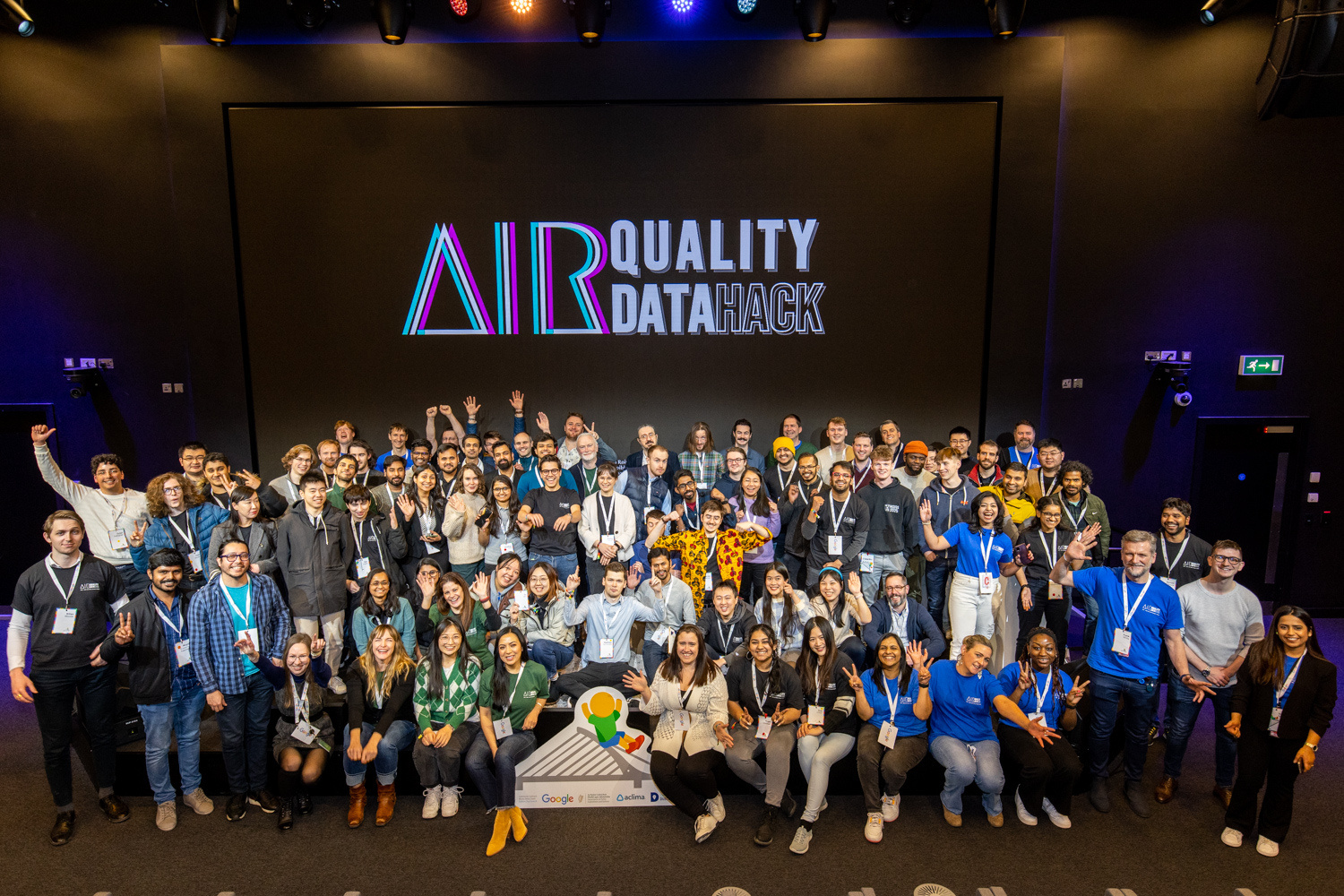
COLLABORATING TO FIND PRACTICAL IDEAS FOR IMPROVING AIR QUALITY
Air Quality Data Hack’ – develop innovative ideas, solutions, prototypes or proof of concepts to unlock the potential of granular and hyperlocal city air quality data for Dublin City.
As part of Google Project Air View Dublin 50 million measurements of data is made openly available at Google EIE Labs and Dublin's Open Data Platform, Dublinked to support future research, advocacy & awareness projects around air quality for Dublin.
The hackathon will bring the most innovative, technical and creative minds together with the use of this rich open data.
TAKING PART
Do you have an interest in working with hyperlocal Air Quality data? Calling out to air quality enthusiasts and environmentalists, data scientists and analysts, AEC, UX/UI and service designers, urban planners, app and game developers and more!
Join us for an exciting hackathon were you can use your skills to make a difference. We're looking for innovative ideas that can help improve air quality in our cities and communities.
If you're passionate about air quality and data, this is the perfect opportunity to showcase your talents and make a real impact.
Challenge Areas

Health
Climate Action
Transportation & Logistics
Urban Planning
Why Participate?
Develop new Skills
Real world impact
Expert Mentoring
Networking
Opportunities
Innovation
Fun and Exciting!

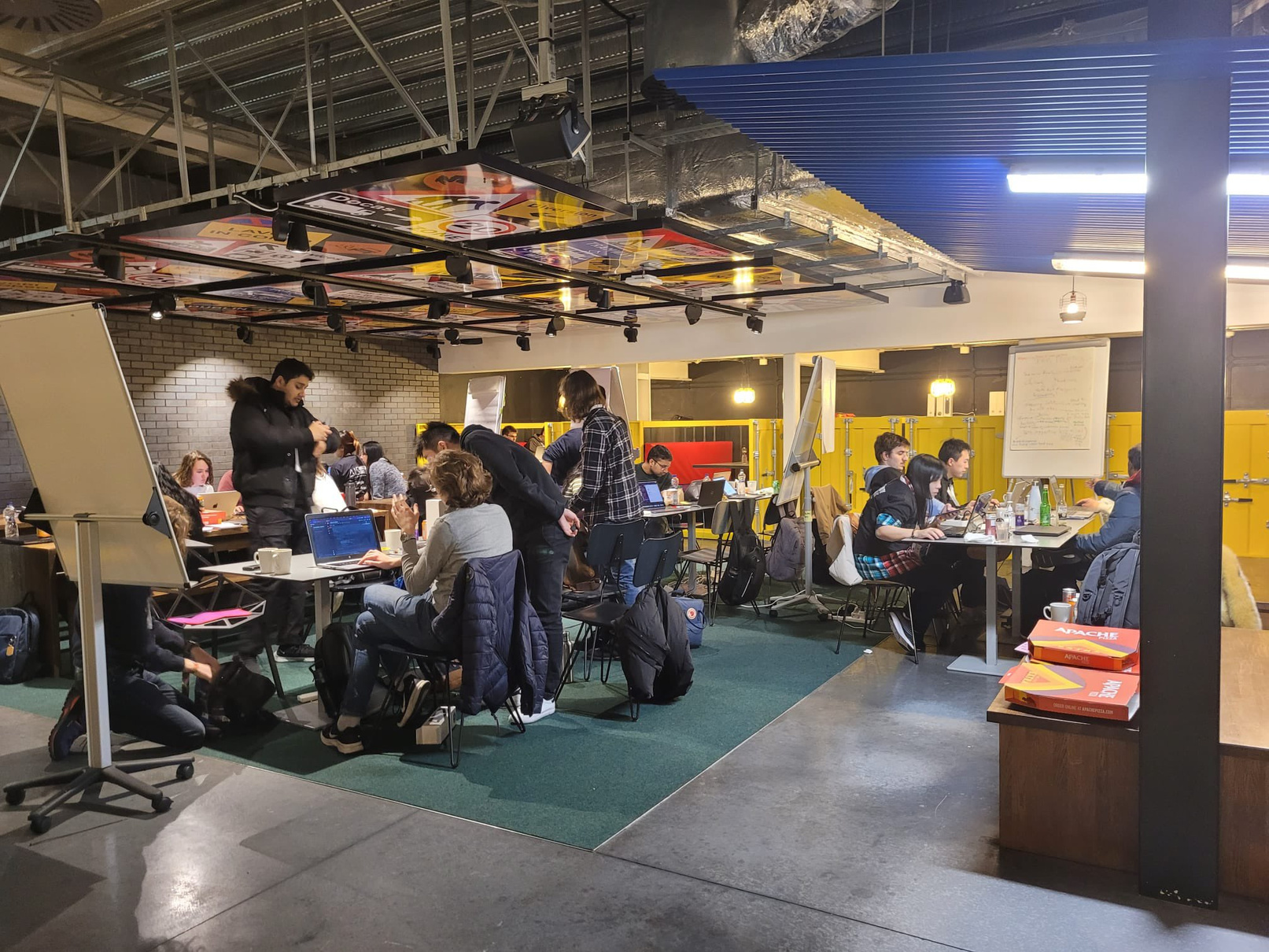
Who Should Attend?
App & Game
Developers
AEC (Architects
Engineers &
Construction)
Professionals
Data Scientists & Analysts
Urban Planners
UX/UI &
Service
Designers
Air Quality Enthusiasts & Environmentalists
Past Events
Google Project Air View
Hackathon opening and Smart Sensing, Big Data & Innovation for better Air Quality
24th February at 17:30 | Oceans 11, Google EMEA HQ, 4 Barrow Street, D04 V3A0
On the 24th Feb at Google Foundry we celebrated the launch of Ireland’s biggest ever air quality data hack! Over the 16 month duration we collected over 50 million records at 5 million locations of street level air quality data for Dublin.
National and international experts asked the question, what this means for cities like Dublin – what can we learn from this data? How can we unlock new insights? How can air quality data be used to support city policies and climate action. How can it benefit citizens and communities?
Owen Keegan
CEO,
Dublin City Council
Paddy Flynn
Vice President
Geo Operations
Google, Inc.
Martin Fitzpatrick
Principal Environmental Health Officer
Dublin City Council
Cllr. Claire Byrne
Dublin City Council
Karin Tuxen-Bettman, PhD
Senior Program Manager
Lead Google Earth Outreach & Project Air View
Google, Inc.
Davida Herzl,
Co-Founder & CEO,
Aclima, Inc.
Dr. John Gallagher
Assistant Professor
Environmental Systems Modelling
Trinity College Dublin
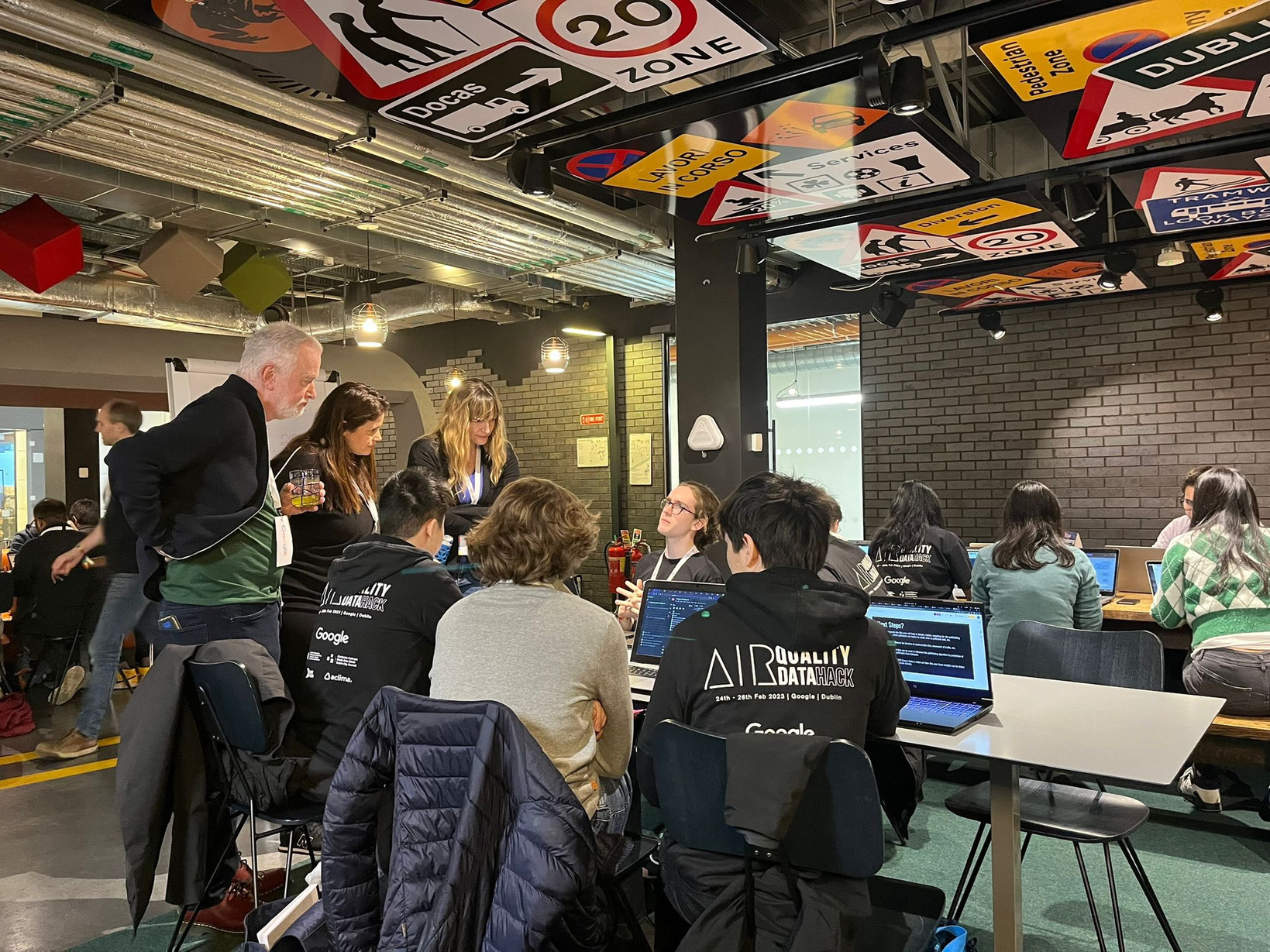
Air Quality Data Hack
25th -26th February | Google Foundry, 4 Barrow Street, D04 V3A0
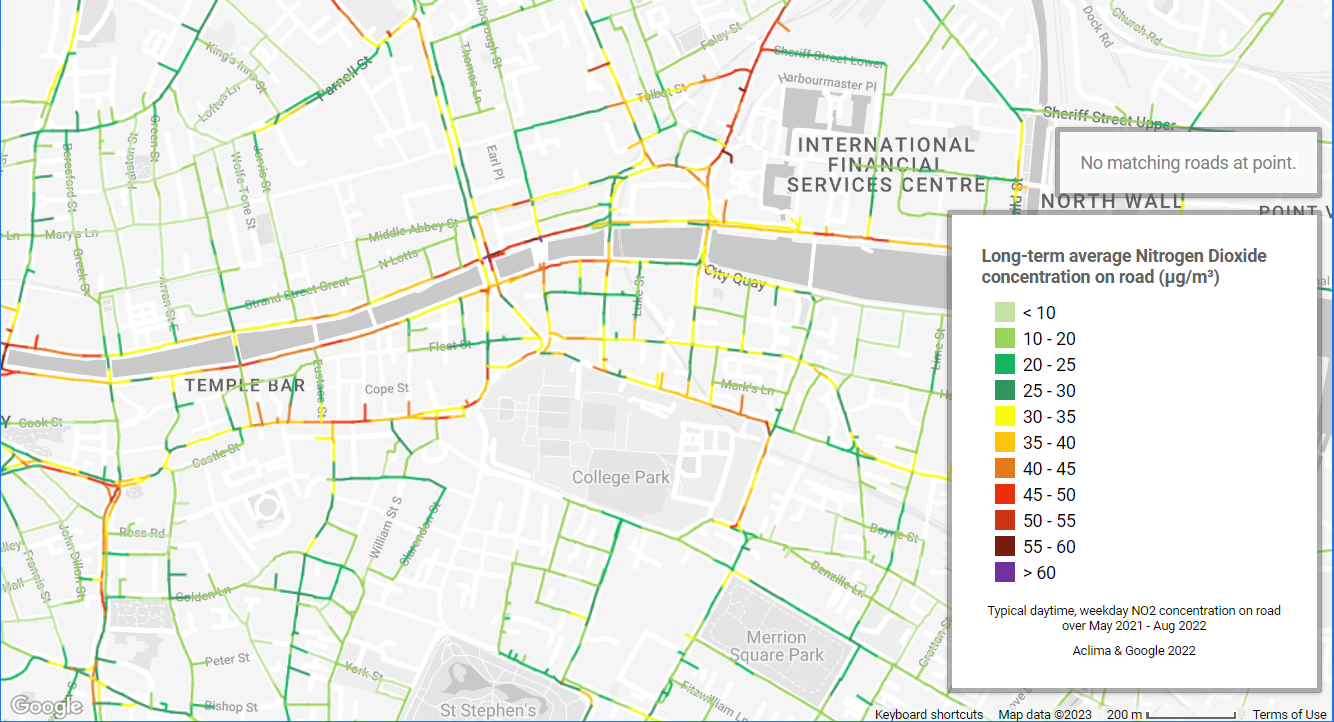
Google Project Air View Data - Dublin City (May 2021 - August 2022)
Data was collected by Google and Dublin City Council as part of Project Air View Dublin. Google's first electric Street View car equipped with Aclima’s mobile air sensing platform drove through the roads of Dublin City measuring street by street air quality.
The pollutants determined are: Carbon Monoxide(CO), Carbon Dioxide(CO2), Nitrogen Dioxide (NO2), NO (nitric oxide), Ozone (O3), and Particulate Matter PM2.5 (including size resolved particle counts from 0.3 - 2.5 μm).
For more information about the project, methodology and maps, visit Google EIE Labs.
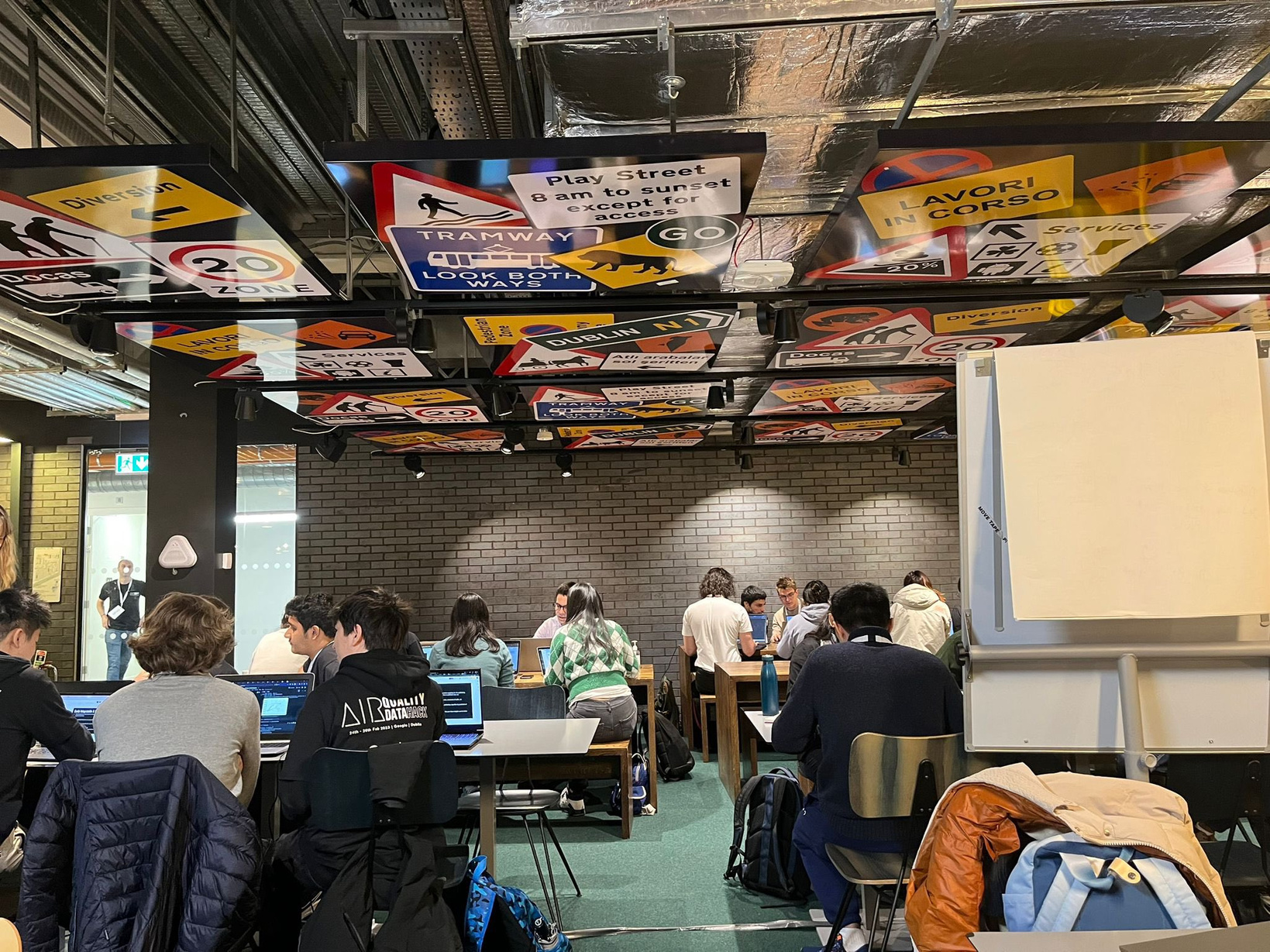
Prizes
2nd Prize
€1000
1st Prize*
€1500
3rd Prize
€750
*Prizes have been sponsored by the Department of Public Expenditure and Reform (DPER) as part of the Open Data Engagement Fund
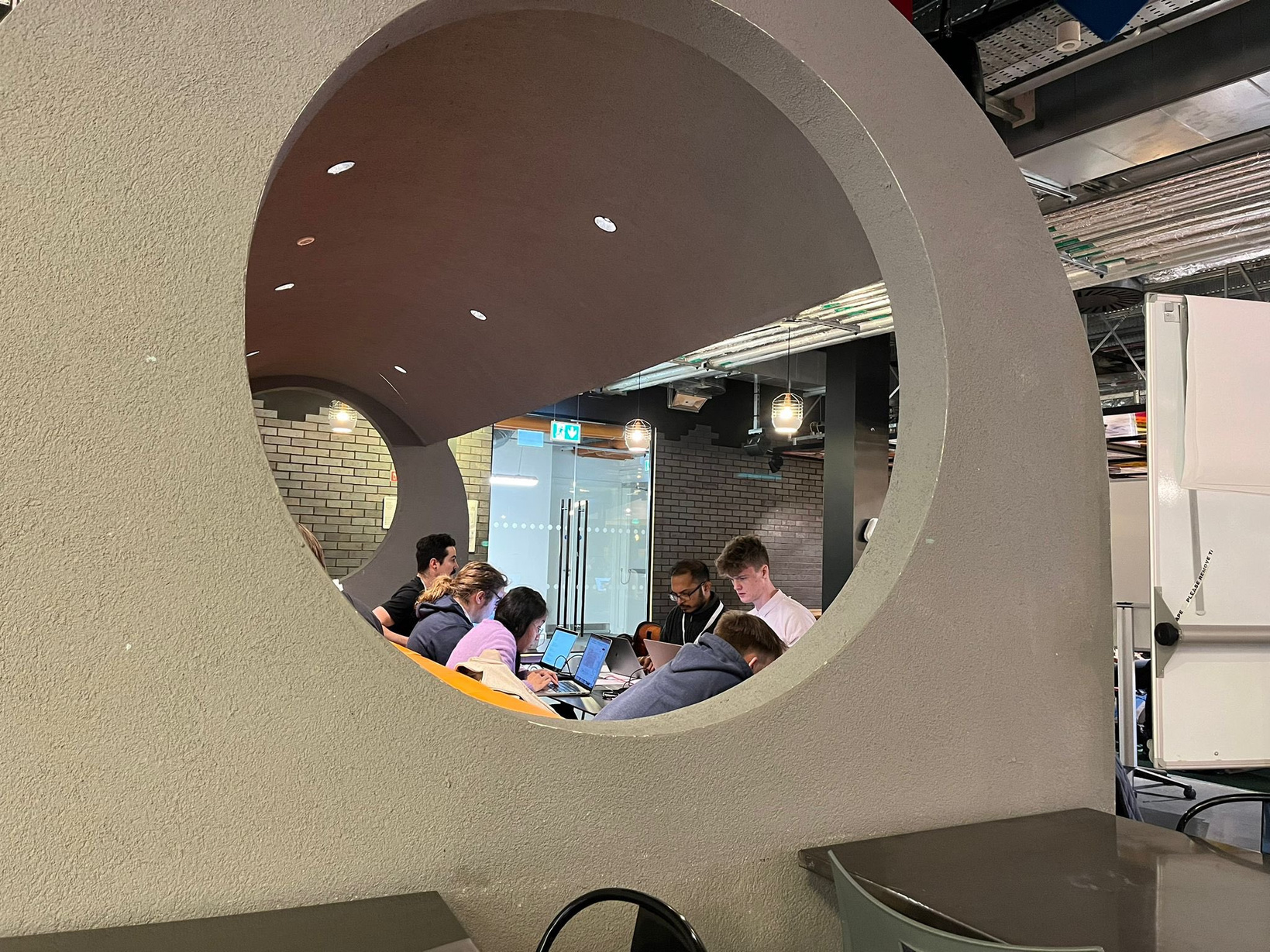
Blogs & News
Partners



